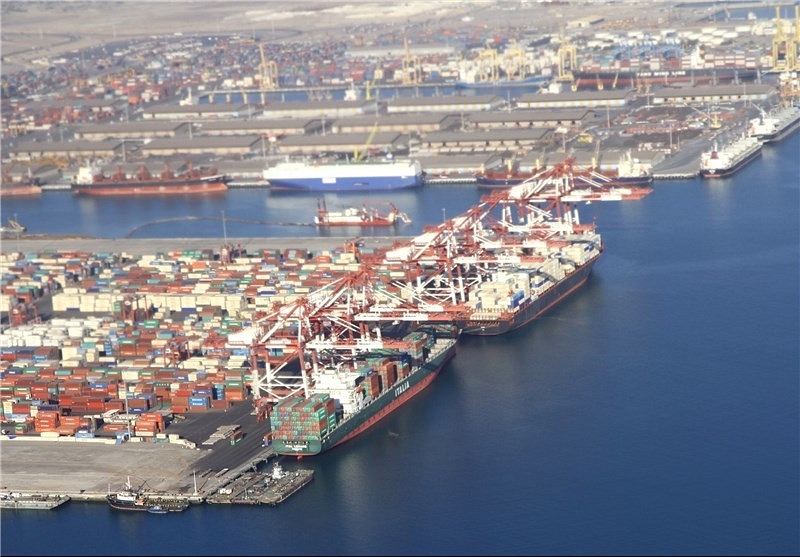World
Chabahar Fate Hangs In Balance As US Reviews Iran Nuclear Deal
- India seems to be closely monitoring US President Donald Trump’s stand on the Iran nuclear deal even as it aims to start Chabahar Port operations by the end of 2018.

Chabahar port
With US President Donald Trump choosing not to certify that Tehran was complying with the terms of the 2015 nuclear deal, the fate of Iran’s Chabahar Port that India has been keen to develop, seems to be in the balance.
The Chabahar project first found mention in an India-Iran joint statement issued in 2003. Fourteen years later, the venture is far from fruition – thanks mainly to India being caught up in US-Iran tensions.
The Iran nuclear deal – clinched in Vienna in July 2015 – commits Tehran to providing the International Atomic Energy Agency (IAEA) with greater access and information on its nuclear programme. As a presidential candidate, Trump had criticised the Iran nuclear deal. Addressing the UN General Assembly session last month, Trump described the pact as one of the “worst and most one-sided transactions the US has ever entered into”.
And on Friday, the US President accused Iran of “not living up to the spirit” of the nuclear pact and said his goal is to ensure Tehran never obtains a nuclear weapon, in effect throwing the fate of the deal to Congress.
While Trump did not pull the US out of the pact, he gave the US Congress 60 days to decide whether to reimpose economic sanctions on Tehran that were lifted under the pact.
On its part, New Delhi seemed to be monitoring the developments with a wary eye given that the US Congress has been seen as more hawkish on the Iran nuclear deal than the administration in the past.
“At the moment, I don’t think there is any impact (on Chabahar) before Congress acts,” said former foreign secretary Kanwal Sibal. “In the past, there have been embargos of over $20 million investment in Iran,” he said, but added that this time with the European Union, China, Russia and other major countries opposing the US de-certification, “it should give India cover to continue with Chabahar.”
A shipping ministry official who didn’t wish to be identified agreed with Sibal. “The project was conceived and went on when the sanctions were in place. So we don’t expect any US decision to impact the project.” However, he added that ball is in the US Congress’s court and it’s premature to judge the outcome.
It was only in last May that India and Iran signed a pact to develop the Chabahar Port on the Gulf of Oman. The two countries also signed a trilateral connectivity pact to open an alternative route for landlocked Afghanistan, to access markets like India.
According to the preliminary pact signed between India and Iran on Chabahar, New Delhi is to equip and operate two berths in Chabahar Port Phase-I with capital investment of $85.21 million and annual revenue expenditure of $22.95 million on a 10-year lease. The Iranian side had requested for the provision of a credit of $150 million in accordance with the pact.
The port is seen as key as India looks to bypass Pakistan and move goods to and from Afghanistan via road and sea, given Islamabad’s reluctance to allow overland transit between Afghanistan and India through its territory. The Chabahar Port is also less than 100km from Pakistan’s Chinese-constructed port of Gwadar, part of a project to open up an energy and trade corridor from the Gulf to western China.
Last month, shipping minister Nitin Gadkari said India was “hopeful of starting operations at Chabahar Port by the end of 2018,” describing it as a “win-win situation for India, Iran and Afghanistan as trade and business through this route could reach to even Russia and Europe.”
Finance Minister Arun Jaitley, who was in Washington last week for meetings with the International Monetary Fund and the World Bank, separately underlined the strategic nature of the port, stating that Chabahar would not only “service Iran, but is also going to service Afghanistan.”
Though India has in the past insisted that it would adhere to UN sanctions imposed on any country, New Delhi was forced to trim the amount of oil it sourced from Iran thanks to US sanctions targeting financial institutions dealing with Iran.
This time too, the US could bring bilateral pressure to bear on India to be seen as aligning with its position, Sibal said.
(Mint)
Support Swarajya's 50 Ground Reports Project & Sponsor A Story
Every general election Swarajya does a 50 ground reports project.
Aimed only at serious readers and those who appreciate the nuances of political undercurrents, the project provides a sense of India's electoral landscape. As you know, these reports are produced after considerable investment of travel, time and effort on the ground.
This time too we've kicked off the project in style and have covered over 30 constituencies already. If you're someone who appreciates such work and have enjoyed our coverage please consider sponsoring a ground report for just Rs 2999 to Rs 19,999 - it goes a long way in helping us produce more quality reportage.
You can also back this project by becoming a subscriber for as little as Rs 999 - so do click on this links and choose a plan that suits you and back us.
Click below to contribute.
Latest